#Baroque sculpture
Text
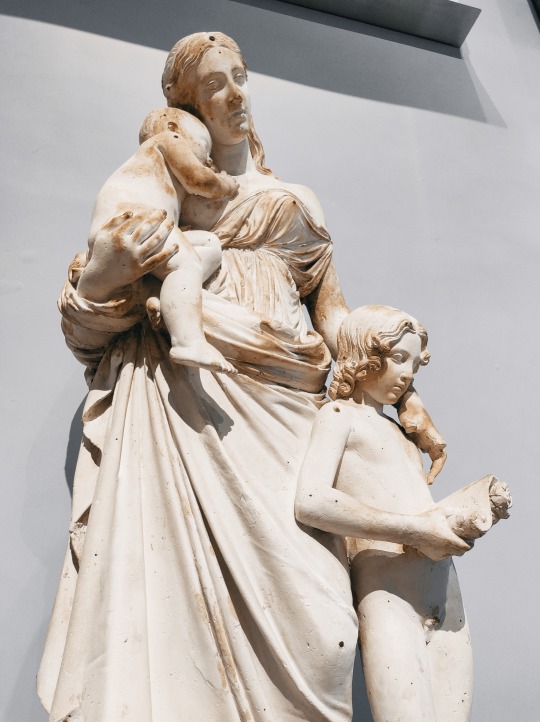
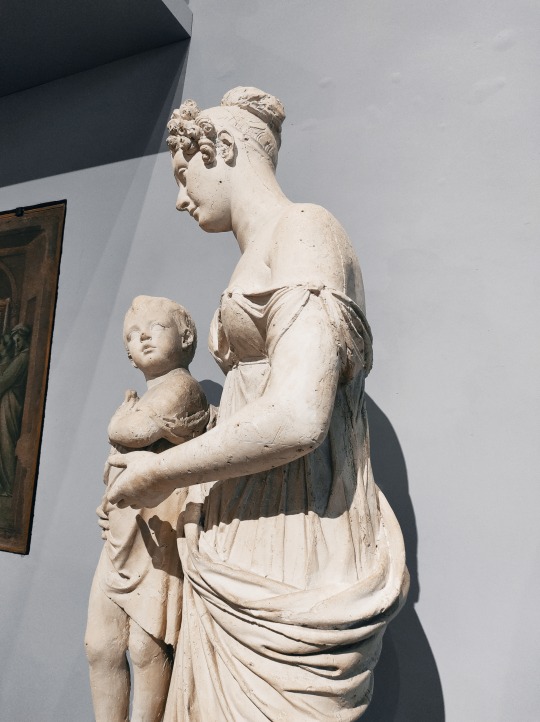
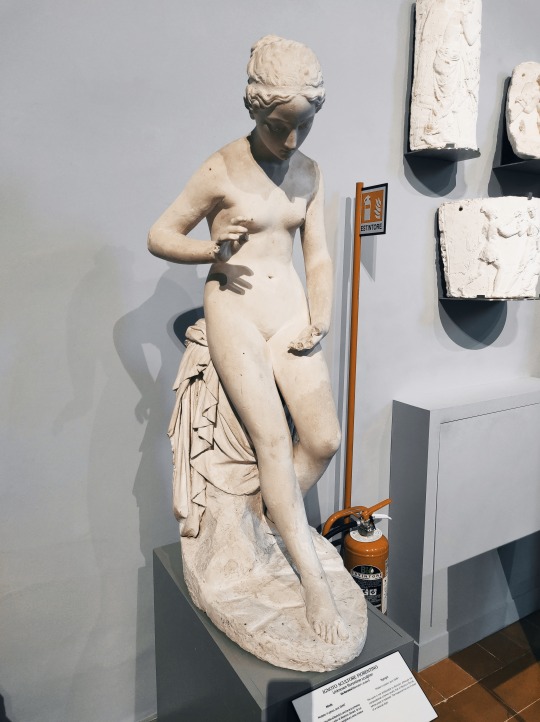
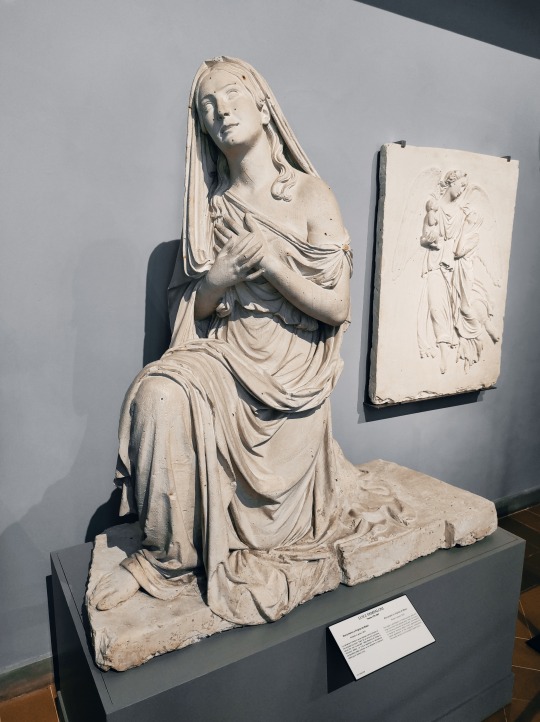
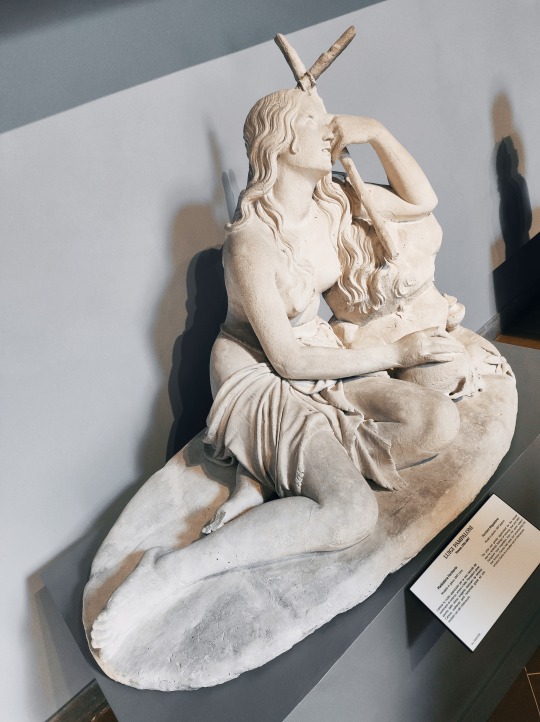
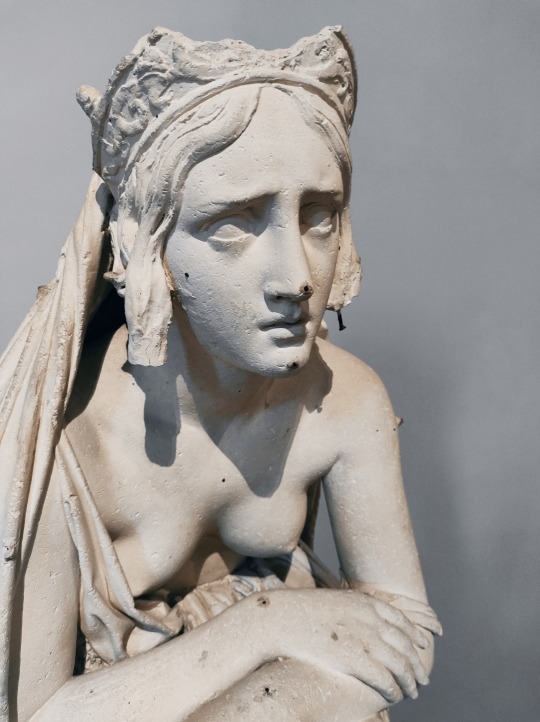
Statues from Gipsoteca Bartolini (part III) - Galleria dell' Accademia // Florence, Italy
#art#art history#sculpture art#sculpture#sculpting#baroque aesthetic#baroque sculpture#baroque#galleria dell’accademia#art photo gallery#art photography#art museum#florence#italian art#art academia aesthetic#art academia#art aesthetic#darkest academia#dark academia aesthetic#dark academia#classic academia#classic academia aesthetic#academia aesthetic#light academia#light acadamia aesthetic
158 notes
·
View notes
Text
Apollo and Daphne


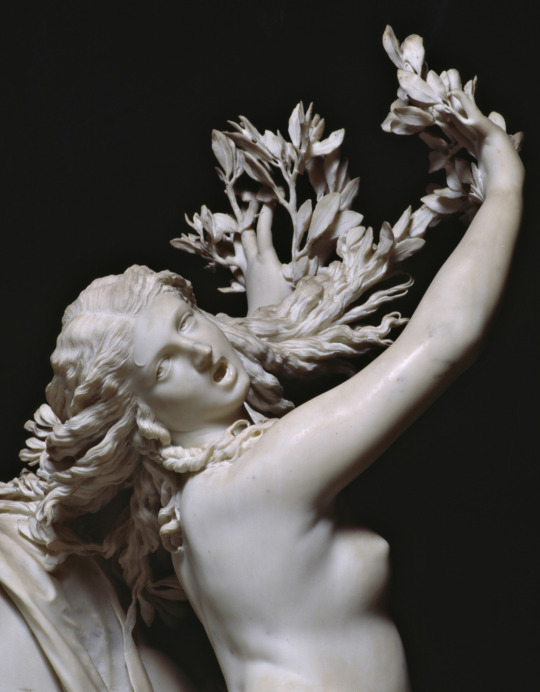
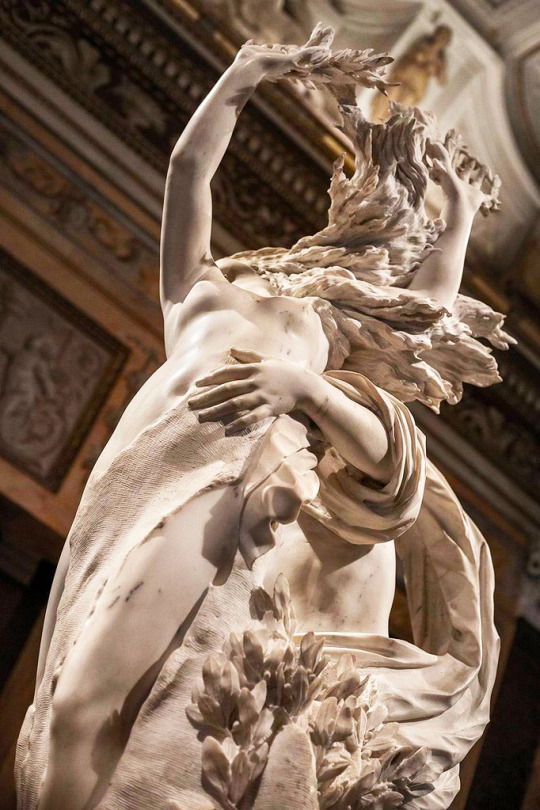
Apollo and Daphne by Gian Bernini, 1622
#art#artwork#art history#art detail#artist#sculpture#apollo and daphne#mythology#gods#goddesses#Bernini#baroque#baroque art#baroque sculpture#marble#17th century art
118 notes
·
View notes
Text
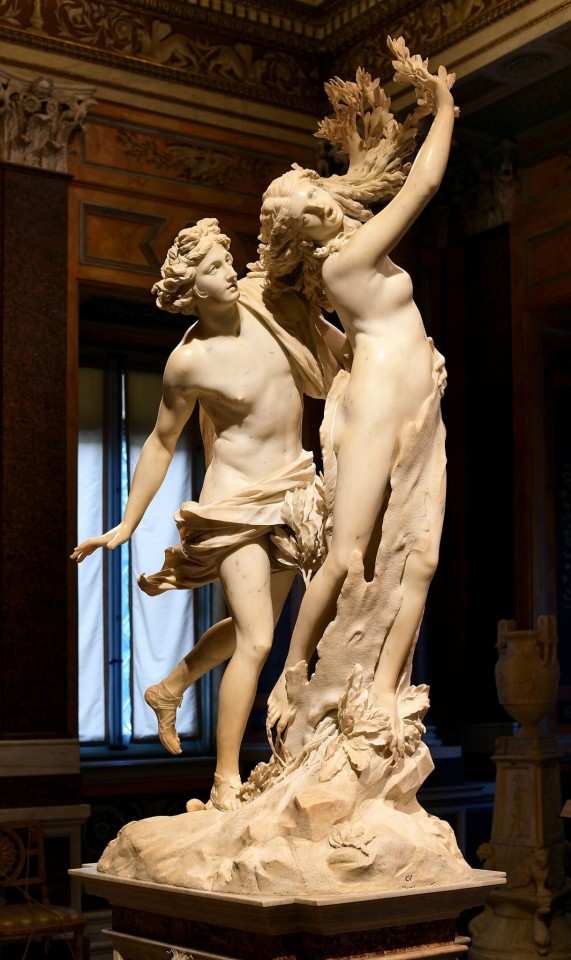
APOLLO AND DAPHNE | 1622-1625 | by GIAN LORENZO BERNINI
GIAN LORENZO BERNINI's "APOLLO and DAPHNE" sculpture is a masterpiece of the Baroque era that captures the dramatic moment of transformation from DAPHNE into a laurel tree.
The life-sized marble sculpture depicts the climactic scene from OVID'S Metamorphoses, where the god APOLLO pursues the nymph DAPHNE, who pleads to her father, the river god, to transform her to escape APOLLO'S advances. BERNINI'S technical virtuosity is on full display as he masterfully renders the transition from DAPHNE'S human form to the emerging laurel leaves and branches
The sculpture's dynamic composition and sense of movement create a cinematic effect, as if the viewer is witnessing the metamorphosis unfold before their eyes. BERNINI'S use of twisting, undulating forms, and the contrast between the smooth, sensual flesh of DAPHNE and the rougher textured bark of the tree heighten the drama and emotional intensity of the scene
The work's innovative narrative approach and BERNINI'S mastery of the medium have cemented "APOLLO AND DAPHNE" as one of the most celebrated and influential sculptures of the BAROQUE period. Its enduring impact can be seen in the way it has inspired and influenced generations of artists, solidifying BERNINI'S reputation as a true master of the sculptural form.
24 notes
·
View notes
Text
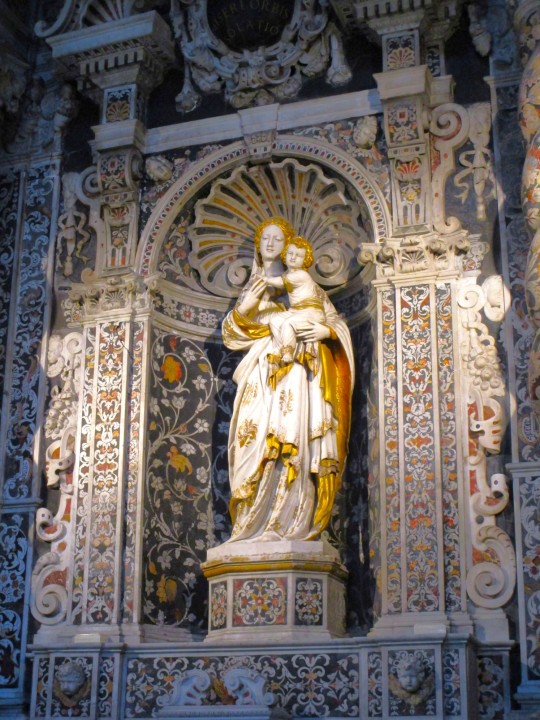

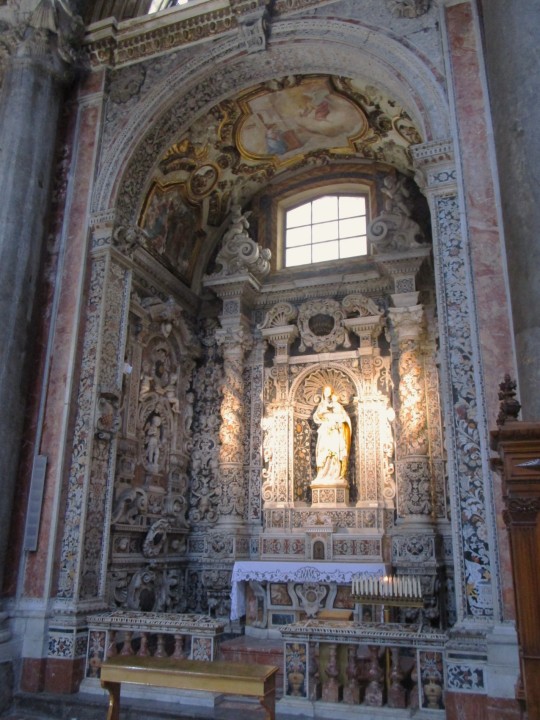
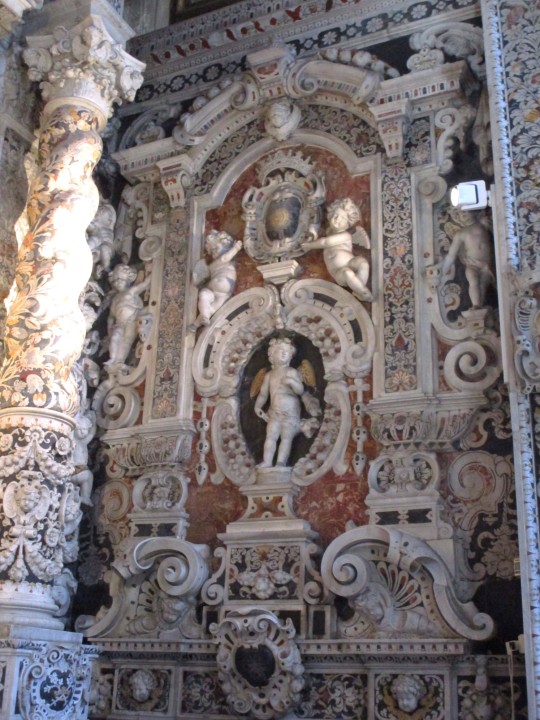
The Chapel of the Madonna della Providenza at San Giuseppe dei Teatini in Palermo, Sicily sits above a natural spring. The water from the spring is said to be "a gift from the Mother of Providence to her Palermo children," and it is credited with healing "all infirmities."
The spring was discovered during excavations under the chapel on January 7th, 1668, and by January 15th the Theatine fathers had completed sufficient infrastructure to begin welcoming thousands of pilgrims to the church. No one can monetize a leaky basement better than a group of Catholic priests. This was 200 years before a similar flow of miraculous water bubbled up in Lourdes, France.
Photos by Charles Reeza
#roman catholic church#Marian cult#cash flow#inlaid marble#stone carving#Baroque art#Baroque sculpture#Sicilia#travel photos
63 notes
·
View notes
Text

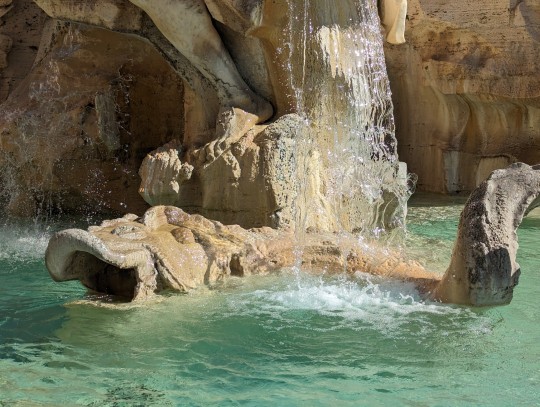
Dolphin in the Fontana dei Quattro Fiumi 3/20/2024
#ik this ones rough but trying to mix watercolors with nothing to put anything on is rough ok#art#my art#drawing#sketch#watercolor#watercolor painting#Fontana dei Quattro Fiumi#fountain of the four rivers#piazza navona#watercolour#fish#dolphin#delfino#roma#rome#italia#italy#fountain#drawing from life#plein air#bernini#art history#baroque sculpture
10 notes
·
View notes
Text

12 notes
·
View notes
Text
This Ecstasy of Saint Teresa (Italian: L'Estasi di Santa Teresa or Santa Teresa in estasi) is a famous sculpture by Gian Lorenzo Bernini, a master of the Baroque style, made between 1647 and 1652. It was commissioned by Cardinal Federico Cornaro, a member of the influential Cornaro family, who wanted to glorify his family name and patron saint. It depicts a scene from the life of Saint Teresa of Ávila, a Spanish nun and mystic, who experienced a vision of an angel piercing her heart with a golden arrow, causing her both pain and joy. The sculpture is located in the Cornaro Chapel of the Church of Santa Maria della Vittoria in Rome and is considered by many as one of the most expressive and dramatic works of art in the history of Western civilization.
source
#the ecstasy of saint teresa#gian lorenzo bernini#baroque art#baroque sculpture#high roman baroque#17th century#cornaro chapel#church of santa maria della vittoria#saint teresa of avila#rome#western european art#catholiscism#christianity#western culture
7 notes
·
View notes
Text
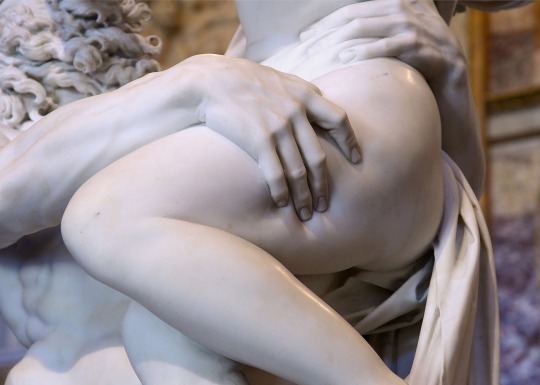
Detail from The Rape of Proserpina, marble sculpture by Gian Lorenzo Bernini, 1622.
62 notes
·
View notes
Text

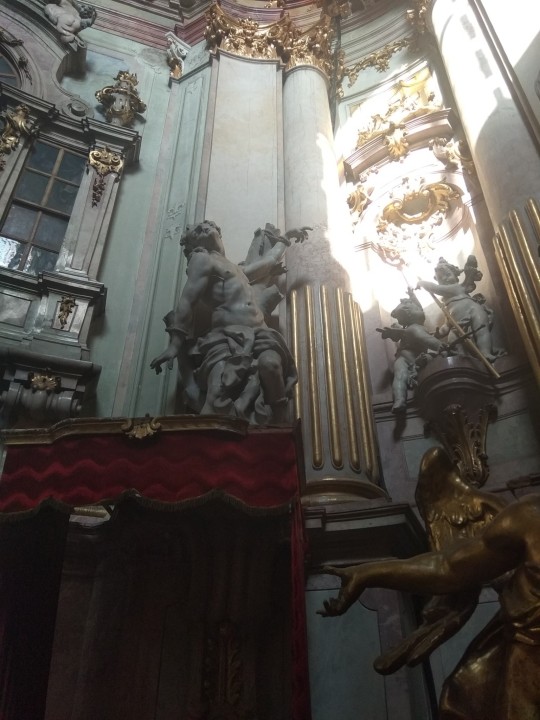
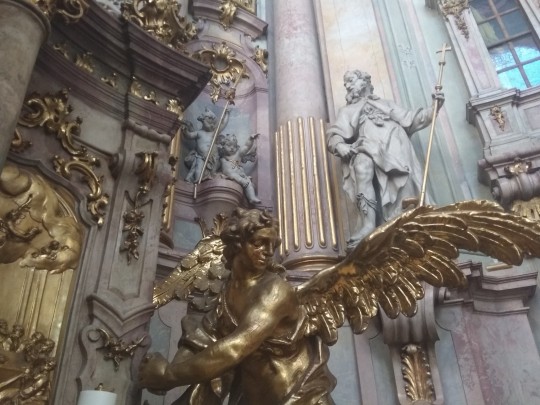


#baroque church#baroque architecture#baroque#baroque sculpture#sculpture#rococo architecture#rococo#abbey jasov#slovakia#church#art#history
16 notes
·
View notes
Text
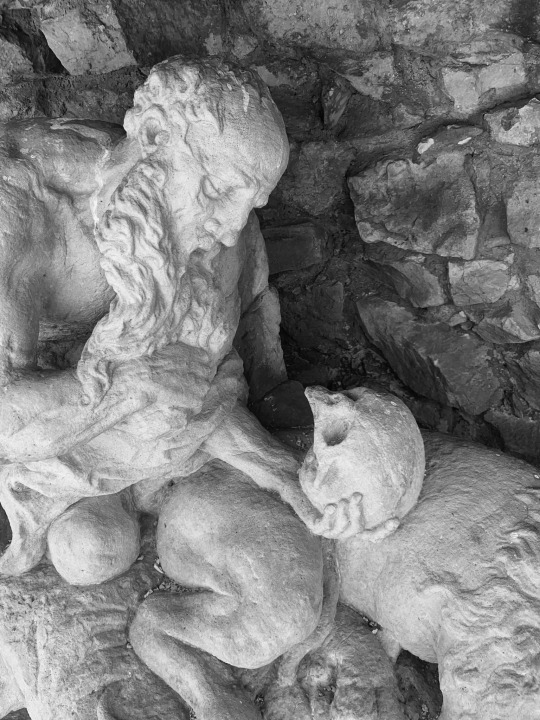
9 notes
·
View notes
Text
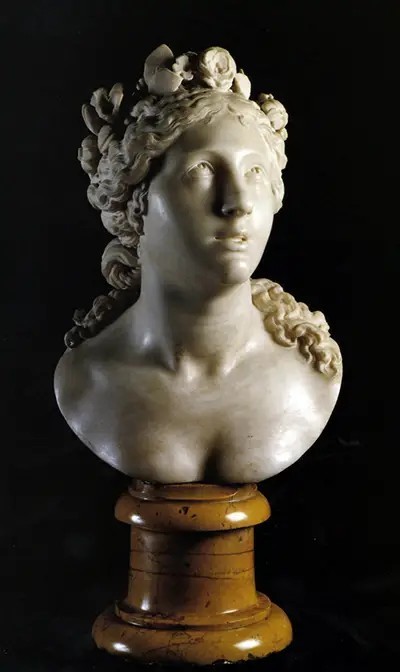
Gian Lorenzo Bernini (Italian, 1598-1680) • The Blessed Soul (also known as Anima Beata in Latin) • 1619 • Marble • Palace of Spain, Rome

Damned Soul • 1619 • Marble • Palace of Spain, Rome
Damned Soul was created by Bernini as a pendant piece for the bust Blessed Soul (above).
5 notes
·
View notes
Text
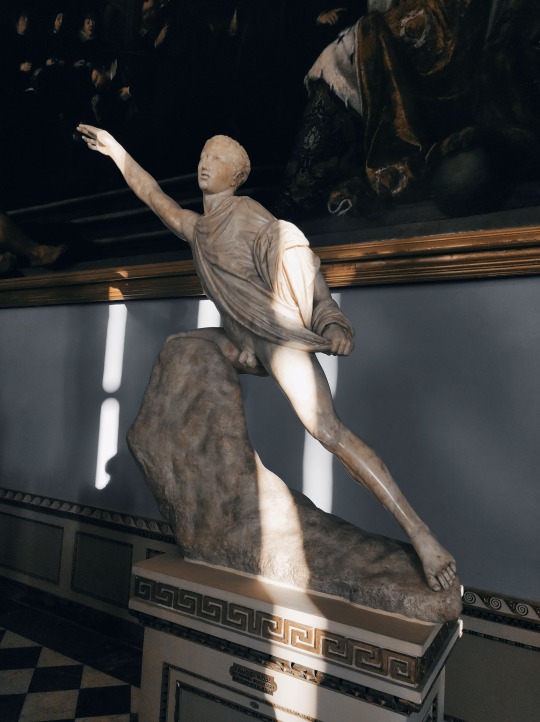
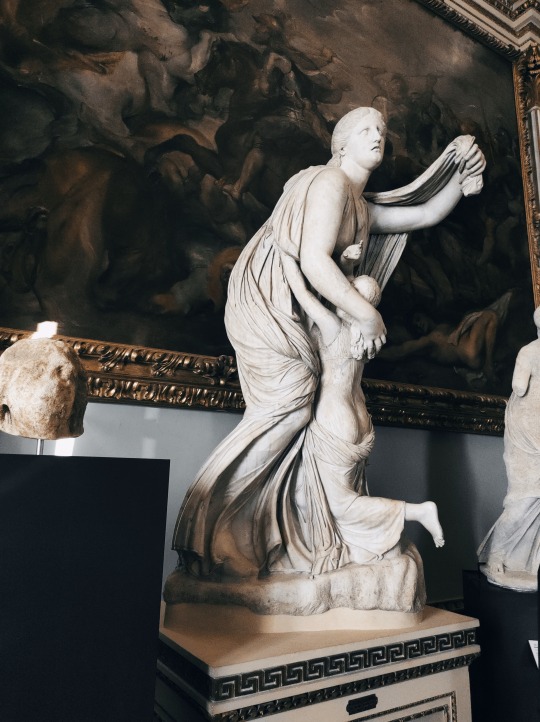
[ One bright morning changes all things
Soft and easy as your breathing, you wake
Your eyes open at first a thousand miles away
But turning shoot a silver bullet point-blank range
And I can scarce believe what I'm believing in
Could this be how every day begins? ]
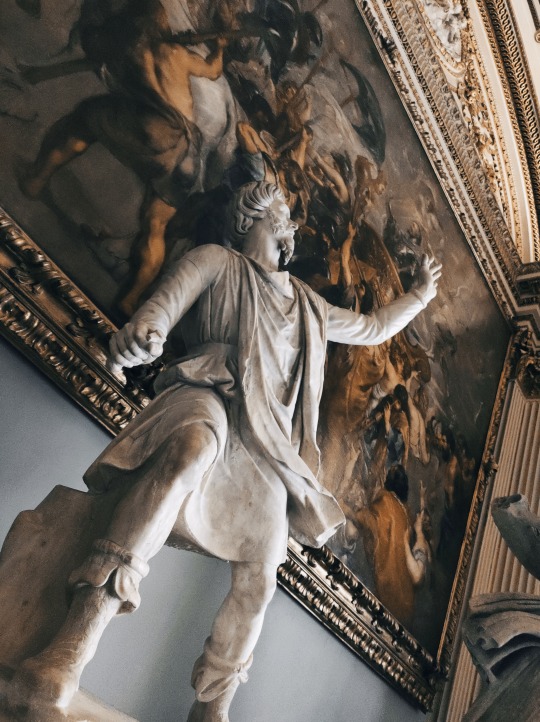

[ One bright morning goes so easy
Darkness always finds you either way
It creeps into the corners as the moment fades
A voice your body jumps to calling out your name
But after this I'm never gonna be the same
And I am never going back again ]
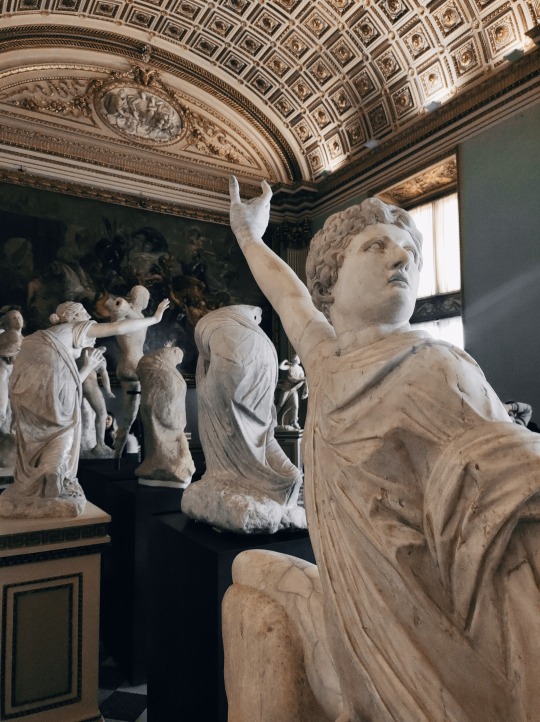
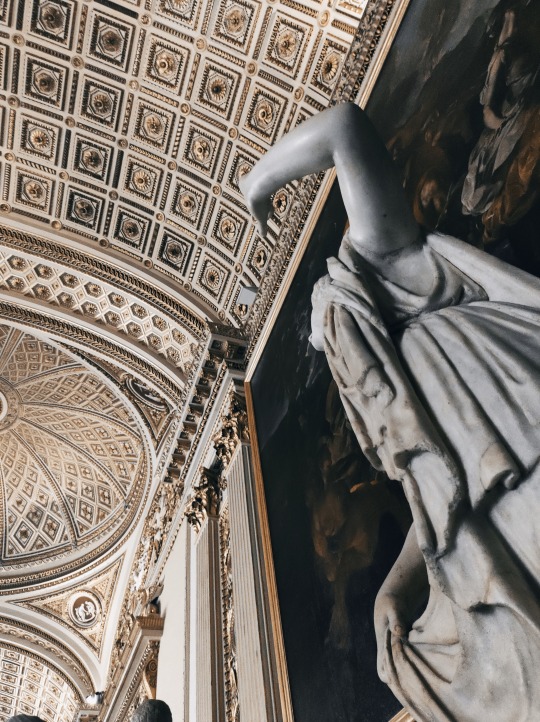
Niobe Room // Uffizzi Gallery // Florence, Italy
First Light // Unreal Unearth // Hozier
#art#art history#sculpture art#sculpture#sculpting#baroque aesthetic#baroque sculpture#baroque#art photo gallery#art photography#art museum#florence#italian art#art academia aesthetic#art academia#art aesthetic#darkest academia#dark academia aesthetic#dark academia#classic academia#academia aesthetic#light academia#light acadamia aesthetic#statue#uffizi gallery#niobe#academia#hozier#hozier unreal unearth#first light
95 notes
·
View notes
Text

“ascend deeper”
#collage art#art journal#art#digital collage#collage#analog collage#skyscrapers#aquatic#blue#baroque sculpture
2 notes
·
View notes
Text

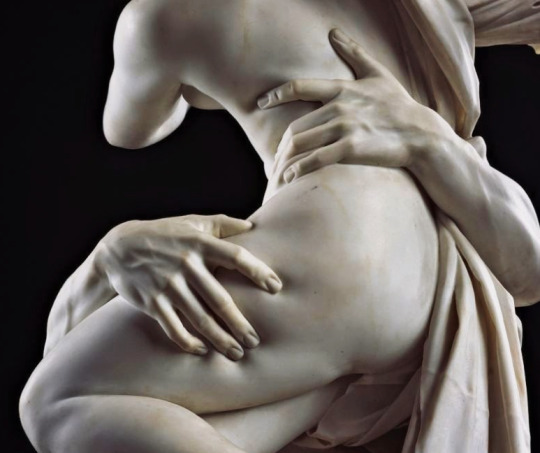

The abduction of Proserpina, Gian Lorenzo Bernini, 1621-22
#art history#art#italian art#baroque#aesthethic#marble#sculpture#greek mythology#roman mythology#proserpina#persephone#hades#gian lorenzo bernini#bernini#galleria borghese#ancient greece#pluton#17th century
2K notes
·
View notes
Text
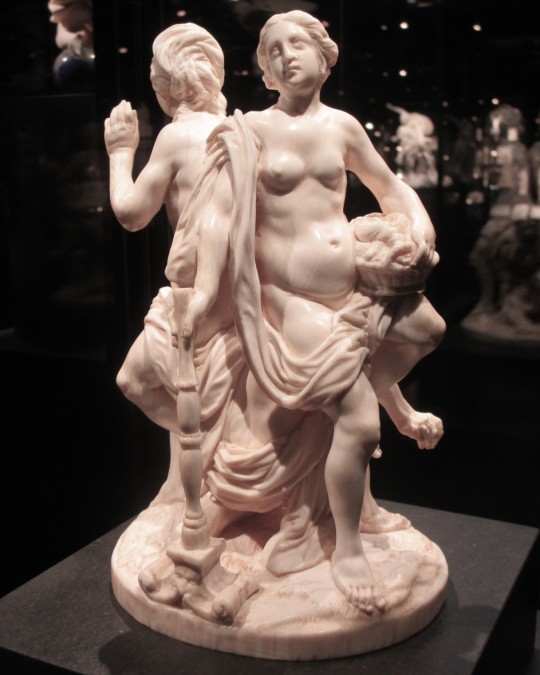
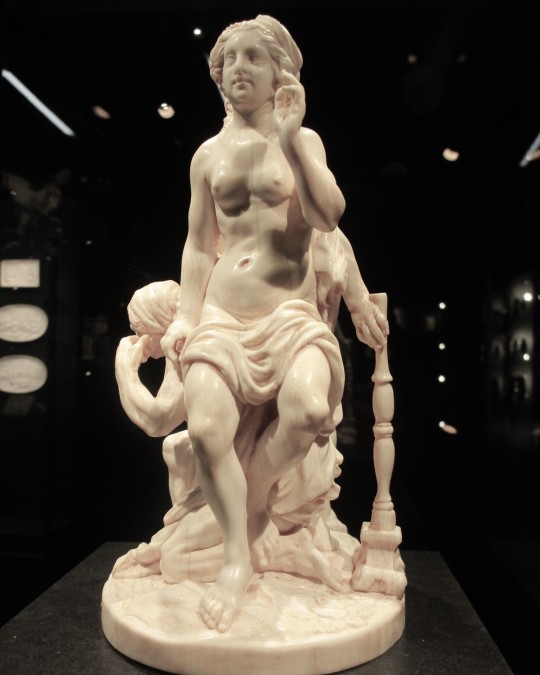
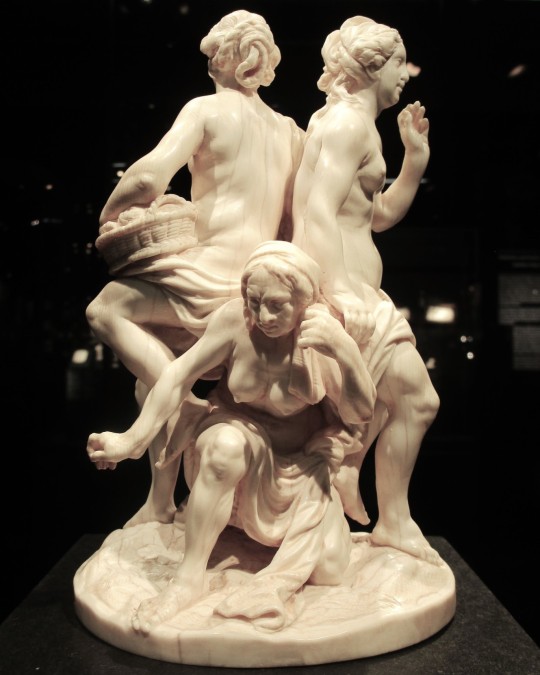
The Three Parcae, ivory, Joachim Henne, 1670
The Reiner Winkler Collection, Liebieghaus Sculpture Museum, Frankfurt, Germany
In Roman mythology, the Parcae were the female personifications of Destiny. They are often called the Fates in English. Their Greek equivalents were the Moirai. They controlled the "thread of life" of every mortal and immortal. Even the gods feared the Parcae.
Nona spun the thread of life on her spindle, Decima measured the thread of life, and Morta cut the thread of life and chose the way a person would die.
11 notes
·
View notes
Text
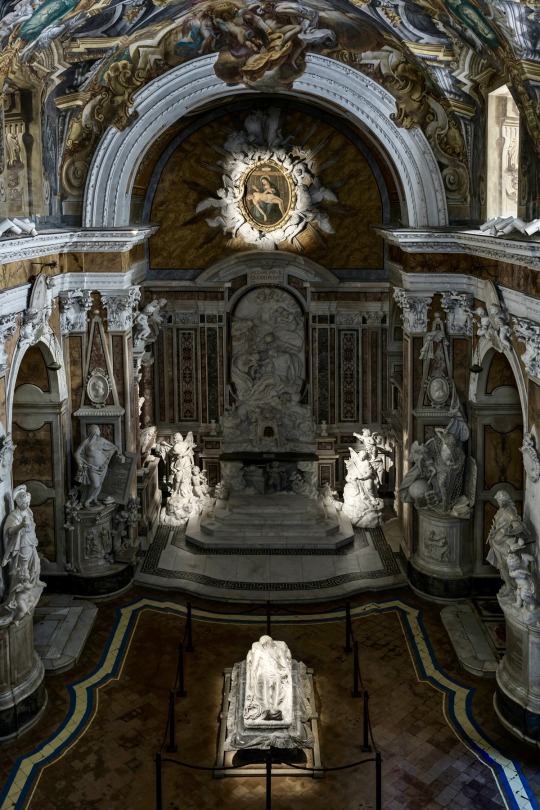
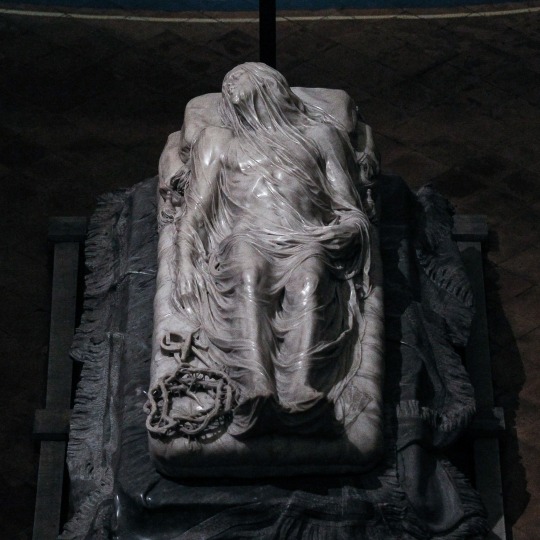
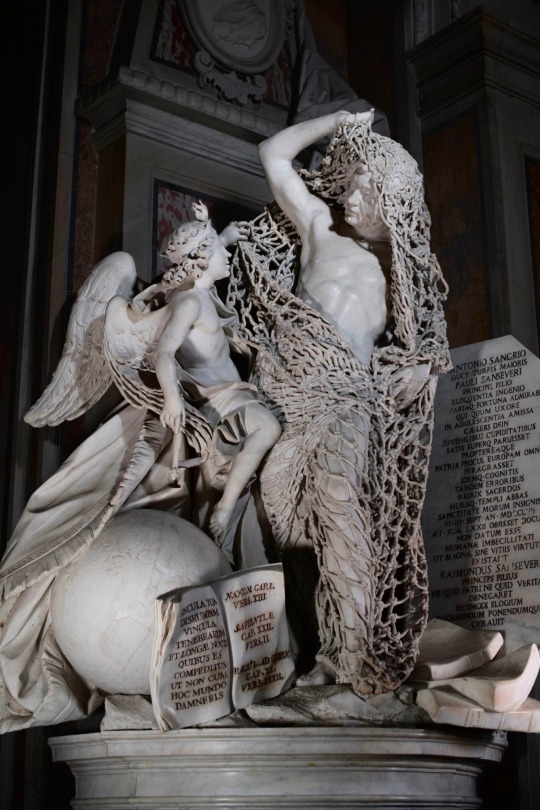

The Cappella Sansevero, Naples, Italy ♡
#art#chapel#art history#architecture#classic academia#artblr#light academia#dark academia#romantic academia#classical art#sculpture#sculptures#church#aesthetic#soft academia#baroque#renaissance art#academia aesthetic#artist#artists#museum#art community#italy#travel#traveling#museum aesthetic#renaissance
764 notes
·
View notes